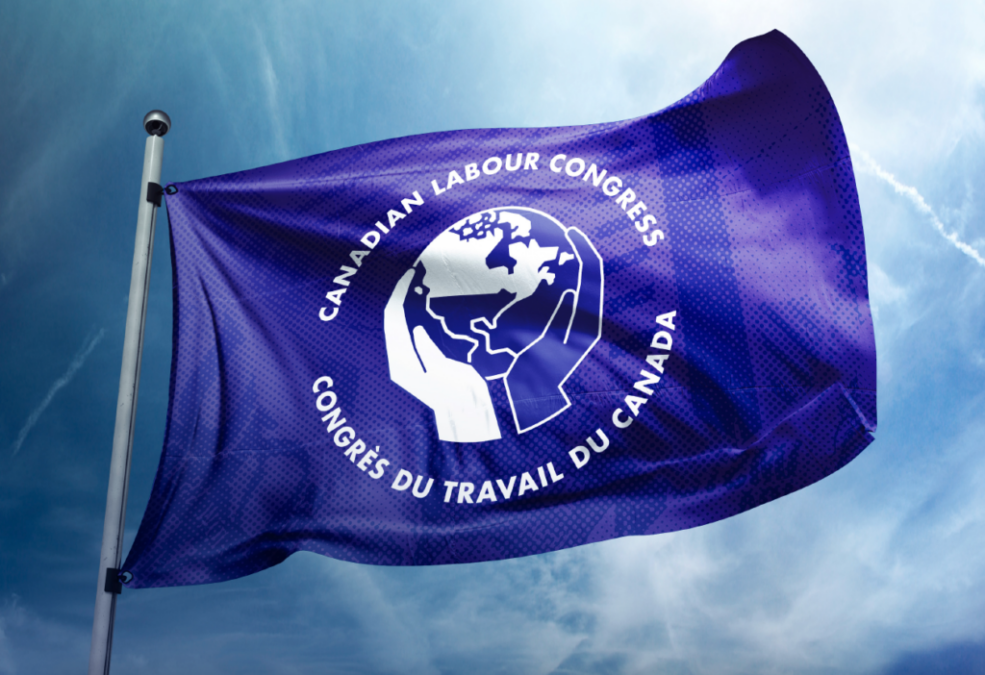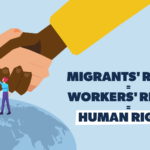
Canada’s unions are lifting everyone up
Bruske: As Parliament adjourns, we celebrate progress made and gear up to fight even harder for workers in 2023
OTTAWA — The current parliamentary session has drawn to a close, and Canada’s unions are taking the opportunity to celebrate the progress made this year for workers.
In 2022, many workers and their families buckled under sky-high inflation, eye-popping grocery bills and stagnant wages, as well as rapid interest rate hikes, which drove up housing costs. But unions have been a strong voice to correct the Bank of Canada’s single-minded strategy of lowering inflation by raising rates, at the expense of workers.
“Canada’s unions are working hard to fend off a Bank of Canada-manufactured recession. Throwing hundreds of thousands out of work now would be devastating,” said Bea Bruske, President of the Canadian Labour Congress.
Unions urged the federal government to throw a lifeline to struggling families. Cooperation between the New Democrats and the Liberal government resulted in significant gains, including dental care for low-income children and a $500 rent subsidy for low-income renters. The GST rebate was also doubled, providing relief to many Canadians. Unions will continue to call for EI reform, which is more important than ever as Canada teeters on the brink of a recession.
“Parliamentarians working together, across party lines, is key to progress,” said Ms. Bruske. She added that Canada’s unions would push for more cooperation to tackle the pressing challenges ahead of us.
Unions have also led the charge against corporate greed. “When we have grocery CEOs clinking glasses with shareholders to celebrate colossal profits at the same time as one in five families are skipping meals to get by, something is broken,” Bruske added. “We hope to see progress urgently. The federal agriculture committee’s investigation into grocery store profits is a good first step and we welcome it, but there is still much that needs to be done.”
Affordability is not the only issue on Canadians’ minds. This year, in the shadow of a health care crisis, unions helped secure $2 billion in additional funding for health care to help people access the care they need. But those funds just scratched the surface of the needs of our care systems.
“Emergency rooms are overflowing with sick kids. People are waiting up to a decade to find a family doctor. Health care workers are overworked, underpaid and exhausted. We need urgent action from our provincial and federal governments to ensure staff are supported, and everyone in Canada has access to quality, public health care when they need it,” said Bruske.
Child care workers, their unions and advocates across the country scored a major victory when the federal government penned agreements for $10/day child care programs in all provinces. Bruske commented, “Affordable child care makes it easier for parents to work and provide for their families, and it will give children the opportunity to learn and grow in a safe and nurturing environment.” Next, we must ensure child care is accessible and workers have good working conditions.
“We’ve made progress but we can’t lose sight of the next big challenge ahead, the climate crisis, which continues to threaten people in Canada and around the world,” said Bruske, who applauded the federal government’s $250 million investment in the Sustainable Jobs Training Centre and the Union Training and Innovation Program. “Now we expect workers to be given a seat at the table, and we’re looking for meaningful investments in sustainable jobs that will help Canada meet its climate targets,” she added.
2022 also produced some significant wins for workers’ rights. Ontario Premier Doug Ford attempted to block workers’ charter right to strike and impose a collective agreement on low-paid education workers. He was forced to back down and sent back to the bargaining table because of the strength and unity of the labour movement across Canada.
Unions made strides on worker-centered legislation. Bill C-228, which will protect workers’ hard-earned pensions in the event of employer bankruptcy, passed the House of Commons. Now, we urge Senators to waste no time and make sure this bill is passed swiftly. The federal government also announced anti-scab legislation, which will go a long way towards restoring fairness at the bargaining table. A major focus of next year will be ensuring both pieces of legislation pass into law quickly.
“Canadian unions are a powerful force for good, standing up for workers and advocating for strong public services, education and health care that benefit everyone,” said Ms. Bruske. “We’re just getting started. This year, we have proven that our labour movement is stronger than ever. We are ready to do what it takes to put workers first and fight against corporate greed and injustice in 2023 and beyond.”
-30-
To arrange an interview, please contact:
CLC Media Relations
media@clcctc.ca
613-526-7426








